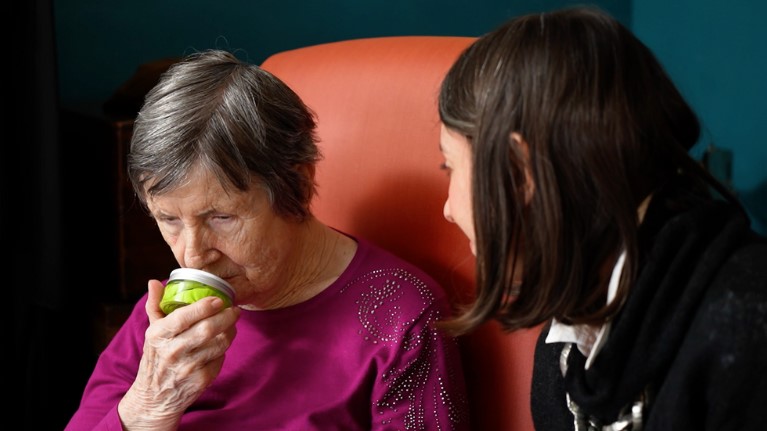Can we use smell to improve the lives of those living with dementia?

Research Impact at the University of West London is a video series exploring the breadth of research across disciplines of study at UWL and the impactful changes which come from it, whether it be improving patient outcomes and people’s wellbeing, influencing policy decisions or guiding business decisions.
Dr Federica D’Andrea, Chartered Psychologist and Lecturer in Dementia Studies at the Geller Institute of Ageing and Memory (GIAM), investigates ways to improve the quality of life and wellbeing of people living with dementia, their care partners and families through developing and evaluating innovative psychosocial interventions and novel research methodologies.
Federica is currently researching the potential of our sense of smell (olfaction) as a supportive system in the aging process and for people living with dementia to promote positive changes, enhancing our lives as we age as well as improving outcomes and experience of people living with dementia and families.
“Our sense of smell plays an important role in everyday life, shaping our perception and the way we interact with the world around us. This important sense mediates flavours of foods and drinks, significantly enhances our quality of life, and is very powerful in triggering memories and associated emotions from our past.”
Federica’s research explores how the use of smell can trigger memory and emotional responses, and create positive stimulation for people living with dementia, which can enhance communication and engagement as well as strengthen cognitive function.
Together with colleagues from INTERDEM Methodology Taskforce – a leading European network of researchers committed to advancing early dementia detection and developing effective psychosocial interventions – Federica is co-leading METHODEM project. METHODEM aims to advance dementia research by exploring novel methodologies approaches to develop, evaluate and implement effective, relevant and sustainable psychosocial interventions in the real-world.
“Currently there is no cure for dementia and therefore it is essential that we are working to develop and evaluate effective and relevant psychosocial intervention for people with dementia and also, those who care for them.” Federica D’Andrea




